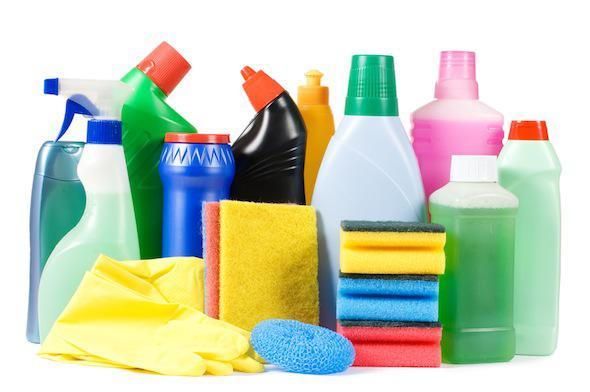
Functional Diagnostic Nutrition May 3, 2018
People regularly use store-bought household cleaners to clean their homes. But they often don’t know that when they do, they expose themselves to harmful chemicals. These chemicals may take a toll on their health when used each week.
Earlier this year, the University of Bergen in Norway concluded a 20-year study. This study followed 6230 participants who were between the ages of 20 and 44. The participants had their lung function tested up to three times during the study.
The participants were divided into three categories: those who didn’t clean, those who cleaned their home at least once a week, and those who cleaned for a living. The study showed that women who used chemical-filled cleaners once a week or more had a decline in lung function. This same group showed an increase in asthma.
Those women who clean regularly experienced a decline in lung function that was the equivalent of smoking ½ to a full pack of cigarettes daily. The study also showed that men were not similarly affected.
If we are now seeing lung damage from these products, what other damage is being done to the body?
Unfortunately, these cleaners don’t just affect the lungs. Another system of the body that is prone to being affected by chemical cleaners is the endocrine system. All the glands of this system create the vital hormones that the body uses.
Many cleaners used in households across the globe contain chemicals known as endocrine disruptors. Endocrine disruptors interfere with the body and its natural messaging system. The chemicals do this in a few ways: they block hormone function or mimic hormones in the body; they can also accumulate in the organs that produce hormones, disrupting production; and they can compete for vital nutrients in the body, leading to nutrient deficiencies.
Problems household cleaners cause
Hormone disrupting chemicals can impact the reproductive organs. They can cause lowered sperm count and reduced fertility. They can also cause birth defects and developmental problems in infants and children. Exposure to these chemicals also contributes to thyroid hormone imbalances and can create hormone imbalances throughout the body.
Many of the chemicals found in commonly used household cleaners are also known carcinogens. A carcinogen is a substance that contributes to cancer in the body. Many of the chemical ingredients that people are exposed to regularly are both carcinogenic and endocrine disrupting.
The companies that manufacture common household cleaners must disclose ingredients in their products that the government has deemed “chemicals of known concern”. But manufacturers do not have to disclose all ingredients in their products. And many ingredients that harm the body have not been recognized as a concern by the government.
How does use of these products impact the health of the people you work with?
These products may contribute to issues such as:
•Infertility
•Trouble carrying pregnancy full term
•Birth defects
•Hypothyroidism
•Respiratory issues such as asthma
•Cancer
•PCOS (Polycystic Ovary Syndrome)
•Skin irritation
•Allergies
•HPA axis dysfunction
•Eye irritation
•Diabetes
•Heart damage
•Nerve damage
•Inflammation
If you are working with clients to help them rebuild their health, you must encourage them to reduce exposure to harmful cleaning products. Convenience keeps most modern consumers reaching for store-bought cleaning products. Your clients may be used to the convenience as well.
But they can begin using simple, safe ingredients to clean that can help them avoid the chemicals that make them sick. Ingredients like castile soap, water, baking soda, vinegar, lemon juice and borax can be great for household cleaning. These ingredients require a little elbow grease to work, but work well.
If you have a client who struggles to give up the convenience of store bought cleaners, then there are options. Using EWG.org’s Guide to Healthy Cleaning Database can help. This database allows you to look up 2500 different cleaning products and gives a breakdown of the potential health hazards of each. It assigns a grade to products and will allow your clients to choose safer products to use in their home.
As exposure to harmful chemicals decreases, the stress on the body does as well. For clients working to reverse nagging symptoms, a reduction in stress will help to speed the process along.
Call us at (609) 484-9300.
Or visit the link below to schedule an appointment.
http://www.drgitto.com/hylnet/clientapp/appointmen...
You can also visit us on the web at www.drgitto.com/
We can help you live an active-healthy lifestyle and enjoy every season of life.
This article is provided by Gitto Advanced Chiropractic & Functional Nutrition in Northfield NJ
Disclaimer: We do not directly dispense medical advice or prescribe the use of herbs or supplements as a form of treatment for illness. The information found in this Newsletter is for educational purposes only and to empower people with knowledge to take care of their own health. We disclaim any liability if the reader uses or prescribes any remedies, natural or otherwise, for him/herself or another. Always consult a licensed health professional should a need be indicated.
